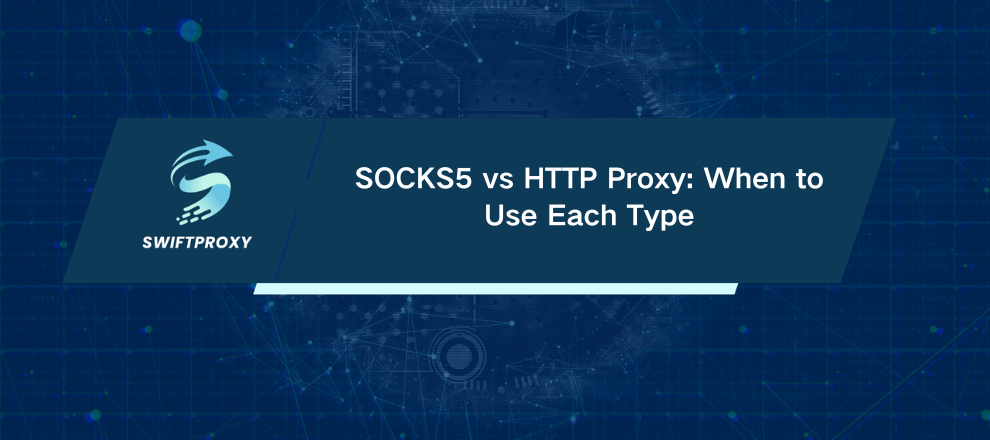SOCKS5 vs HTTP Proxy: When to Use Each Type

If you need a proxy that won't choke under pressure, handles all kinds of traffic, and keeps your data moving without hiccups, choosing between SOCKS5 and HTTP isn't as straightforward as it seems.
These two proxy types might look alike on the surface—both sit between you and the internet, mask your IP, and route your traffic. But under the hood, they work in fundamentally different ways. Picking the right one for your specific use case can save you time, improve performance, and tighten security.
Let's cut through the noise and get straight to what matters.
What's an HTTP Proxy
HTTP proxies are specialists. They handle web traffic—specifically HTTP and HTTPS protocols. When your browser asks for a webpage, the HTTP proxy steps in, relays the request, and passes the response back. Simple.
HTTP proxies understand web traffic. They can cache data, filter content, or block malicious sites. That makes them excellent for tasks like web scraping or controlling what users can access. However, standard HTTP proxies don't encrypt traffic—unless you use HTTPS, which wraps data in SSL/TLS encryption, locking it down.
If your project involves scraping or monitoring web pages, HTTP proxies are usually your best bet. Just remember to prioritize HTTPS proxies when handling sensitive data like login credentials or payment info.
What About SOCKS5
SOCKS5 proxies don't play favorites. They work at a lower network level and don't interpret your traffic. HTTP, FTP, gaming—you name it, SOCKS5 can carry it.
They support both TCP and UDP protocols, offer IPv6 support, and even handle DNS resolution on the proxy side, reducing leaks and speeding up requests. Unlike HTTP proxies, SOCKS5 forwards data without modification, meaning less overhead and generally faster connections.
However, SOCKS5 doesn't encrypt your traffic. You'll need an extra security layer to keep your data truly private.
SOCKS5 vs HTTP Proxy
|
Aspect |
SOCKS5 |
HTTP |
|
Traffic |
Any protocol (HTTP/S, FTP, UDP) |
Only HTTP and HTTPS |
|
Speed |
Generally faster, low latency |
Can cache for faster web access |
|
Security |
No built-in encryption |
Can filter content, supports HTTPS |
|
Use Cases |
Gaming, P2P, streaming |
Web scraping, anonymous browsing |
|
Setup |
More complex, needs configuration |
Easy, browser-friendly |
When to Go SOCKS5
Pick SOCKS5 if your project isn't limited to browsing. Need to stream video or game online? SOCKS5 delivers the speed and flexibility that HTTP proxies can't match.
Yes, setup can be a bit tricky. But once configured, it opens doors to traffic types that HTTP proxies simply can't touch.
When HTTP Proxies Make Sense
For straightforward web tasks, HTTP proxies shine. They're simple to set up, affordable, and great for scraping or basic browsing anonymization.
Just be careful—if you're handling anything sensitive, always use HTTPS proxies to encrypt data. Otherwise, you risk exposing your info.
The Bottom Line
Choosing between SOCKS5 and HTTP depends on your traffic type and security requirements. SOCKS5 offers versatility and speed across various protocols, while HTTP is simpler and better suited for web-specific tasks. Selecting the right proxy tailored to your project ensures improved performance and security without compromise.

















































